The Liar Paradox (and Russell's Paradox) for Non-Logicians (UNLOCKED)
Here's why you should find the challenge the paradoxes pose to classical logic philosophically interesting--even if you're the kind of person whose eyes glaze over when you encounter logical symbols.
In last week’s essay on Žižek, I mentioned that my dissertation—the core argument from which was eventually adapted into this book—was about the Liar Paradox. If you’re curious enough about philosophy to be reading this Substack, there’s a decent chance that you more or less know what that is—but you might not really get why it’s philosophically interesting enough for people to continue to put out books about it in the third decade of the twenty-first century.
This week, I’m going to try to unpack that a little bit. I know that some people who will be reading this are deep analytic philosophy nerds who not only know what that debate is about but already have fine-grained opinions about it. (Love you guys.) But I think (and hope!) that there are other kinds of Philosophy for the People readers—continental philosophy fans, for example, and socialist activists whose main point of contact with philosophical issues comes from thinking about Marxism. Not to mention readers who are just starting to dig into philosophy of any kind.
My goals for this week’s essay are to (a) unpack the contemporary philosophical debate about the paradoxes for people who don’t necessarily get what the issue is, and (b) say enough about my own particular views to be interesting to people who do already know about this stuff, while also (c) making a case to readers in some of those other categories that there’s a compelling issue here in the first place.
I’m not sure if it’s possible to achieve all three of those goals at once, but I’m gonna give it my best shot.
Pray for me.
“The Liar Paradox” is the standard name for the problem about whether sentences like (1) below are true, false, or—I’m sorry, I can’t resist putting it this way—a secret third thing:
(1) The sentence labeled (1) in the essay The Liar Paradox (and Russell’s Paradox) for Non-Logicians is false.
The problem is that if (1) is true, it’s false. And if it’s false, it’s true.
A principle called Bivalence tells us that the only possible “truth-values” sentences can have are True and False. This ends up being equivalent to a basic logical principle called the Law of the Excluded Middle, which we’ll talk about below, if you think that “not P,” “P is not true,” and “P is false” are all ways of saying the same thing. But you might not think that! So let’s talk about Bivalence as its own thing first.
On first glance, the assumption of Bivalence seems to be what’s causing the problem about how to classify (1). If we start by assuming that it has to be true or false—since we think every statement has to be true or false—then we end up with the absurd conclusion that it’s both. So an obvious first thought is that we should solve the paradox by ditching that assumption.
And, what the hell, Bivalence is an extremely plausible principle but it’s not like it’s something that was carved into a tablet by Moses after he heard it from the voice of God. It’s an extremely plausible principle that was invented by human beings. Maybe it’s wrong.
Here’s the problem, though.
Assume for the sake of argument that Bivalence is wrong and sentences like (1) really are the Secret Third Thing.
What about (2)?
(2) The sentence labeled (2) in the essay The Liar Paradox (and Russell’s Paradox) for Non-Logicians is not true.
If (2) is the Secret Third Thing, it’s not true.
If it’s not true, it is true.
And we’re back where we started.
The paradox has been around forever. Aristotle and Cicero both mention it, and there’s even a passage in the New Testament (Titus 1:12) where the Apostle Paul seems to be riffing on a variation of the same idea. He says something about a “prophet of Crete” who says that Cretans "always lie.'“
But the contemporary philosophical debate stems from something way more recent.
Popular-level explanations of set theory almost always start by explaining it wrong. Authors easing readers into the idea of a “set” on p. 1 will say that herds of cattle or piles of stones or packs of wild dogs or clusters of galaxies are examples of “sets” of rocks, cattle, wild dogs, or galaxies. But, at the admitted risk of sounding like an annoying pedant, that’s just wrong.
A set is a particular kind of mathematical object—like a number or a point.
It’s an abstract collection. The herds and piles and packs and clusters are all concrete collections. To see the difference, start with a particular pack of wild dogs. There are four members of the pack—they’re wild dogs, no one’s given them names, so let’s call them Dog A, Dog B, Dog C, and Dog D. But one day Dog B gets separated from the pack and he doesn’t find his way back. If you’re someone who hates stories where bad things happen to dogs, don’t worry—we’ll give Dog B a happy ending. He’s adopted by a nice family who name him Friedrich and buy him lots of squeaky toys and walk him every day. The same thing happens to Dogs A, C, and D, who are adopted by geographically dispersed human families.
At the beginning of the story, we had a pack of wild dogs. We also had an abstract set whose members were the four members of the pack. At the end of the story, the pack no longer exists, but the set constituted by Dogs A-D (who are now, let’s say, known as Karl, Friedrich, Vladimir, and Leon) still exists because sets are defined by their members and all of the members still exist.
The way the story of set theory is usually told, back in the 19th century there was something called “naive set theory.” (Obviously, they didn’t call it that at the time.) Naive set theorists accepted an axiom that says that for every property, there’s a set of all and only the objects that have that property (or maybe for every description, there’s a set of all and only the objects it describes). So for the property “being a dog,” there’s a Set of All Dogs. For the property of being a set, there’s the Set of All Sets. For the property of being one of the original four members of Led Zeppelin, there’s a set whose only members are Jimmy Page, John Paul Jones, Robert Plant, and John Bonham. You get the idea.
Now, historians of mathematics tell us that this standard story is a bit of an over-simplification and even some important early set theorists had complicated views that don’t quite fit the usual picture of “naive set theory”—but having done my due diligence and acknowledged that, I’m just going to move on.
Because whatever mathematicians thought before this next part, they certainly rejected the “naive” framework after.
Bertrand Russell was a socialist, an anti-war activist, and the idol of Noam Chomsky. All of these facts obviously interest me. But the detail that matters for our story right now is his interest in set theory and the foundations of mathematics.
If you want the most fun version of this history, you can actually pick up a graphic novel by Apostolos Doxiadis and Christos Papadimitriou called Logicomix: An Epic Search for Truth. In one of the key scenes, cartoon Russell is smoking his pipe and monologuing about how some sets are parts of themselves and some are not.
The Set of All Birds isn’t a member of itself, since the only things that are members of the Set of All Birds are birds and the Set of All Birds is a set. But the Set of All Sets is a member of itself. So is the Set of All Sets People Have Used as Examples in Essays About Paradoxes. We just used it as an example.
In fact, cartoon Russell muses, there must be a “set of all sets that contain themselves” and a “set of all sets that don’t,” and we could ask an interesting question about that second one. “Does it cont—”
…and he stops mid-sentence and his eyes bug out because he’s just stumbled on what’s eventually going to be known as Russell’s Paradox.
The “Russell Set” is the set composed of all (and only) the sets that are not members of themselves. “Russell’s Paradox” is the puzzle about whether the Russell Set is a member of itself.
If it is a member of itself, it’s a member of the set of sets that are not members of themselves (because that’s what it is), and hence it isn’t a member of itself. If it isn’t a member of itself, then it’s a set that’s not a member of itself, which would mean that it is a member of itself.
If you haven’t quite wrapped your head around the structure of the problem, the classic analogy—introduced by Russell, although I think he claimed it was suggested to him in conversation by a university librarian—is the Barber Paradox. All (and only) the men in some town who don’t shave themselves are shaved by the barber. The barber is a man, and he lives in the town. Who shaves him?
If he shaves himself, he’s not a man who doesn’t shave himself and hence not a man who’s shaved by the barber, so he doesn’t shave himself. If he doesn’t shave himself, he’s a man who doesn’t shave himself and hence a man who’s shaved by the barber, so he does shave himself.
Russell’s Paradox is like that.
Something that very quickly occurred to Russell himself is that his paradox and the Liar Paradox have exactly the same structure—so a natural thought is that whatever the right solution is to one of two problems should also be the right solution to the other. A lot of twentieth-century literature on the paradoxes came out of the resulting revival of interest in the Liar.
As the next bit of intellectual history played out, mathematicians mostly dealt with Russell’s Paradox by rejecting the axiom that for any old property, there’s a set of all and only the things with that property. Various competing versions of modern set theory are based on more carefully constructed axioms that don’t generate the unacceptable result that there is a set of all sets that aren’t members of themselves.
A lot of recent paradox-solvers have thought a parallel move couldn’t be plausibly made in the case of the Liar Paradox—and so they’ve rejected Russell’s assumption that both paradoxes are of the same kind and should have the same solution. It’s not hard to see why they’ve come to this conclusion.
Denying the existence of an abstract mathematical object like a set is one thing, but it’s just a fact that sentences like (1) and (2) exist. And rejecting parts of mathematics for philosophical reasons just seems like a bad idea. As David Lewis acidly pointed out in a different context, “Mathematics is a going concern. Philosophy is as shaky as can be.”
But if we can’t deny the existence of “Liars” (sentences that attribute untruth to themselves), how can we solve the paradox?
Let’s go back to (2):
(2) The sentence labeled (2) in the essay The Liar Paradox (and Russell’s Paradox) for Non-Logicians is not true.
One way of thinking about what’s going on here is that two principles of classical logic seem to be in conflict. The Law of the Excluded Middle (LEM) is the principle that “either P or not-P” will hold for every possible P. The Law of Non-Contradiction (LNC) rules out “P and not-P” in every case.
Sometimes we might answer a question like, “Is it raining?” with “yes and no” if there’s a very light drizzle, but for our purposes right now we can treat questions about vagueness as largely beside the point. Once we decide how much water has to fall from the sky how quickly for “it’s raining” to be true, either there will be at least that much or there won’t be—and that’s the point.
But in the case of (2), the relevant instance of the LEM says that it’s either true or untrue. And that assumption in turn runs afoul of the LNC by entailing that it’s both true and untrue via exactly the kind of reasoning we’ve already run through. So it looks like if we’re going to get to the bottom of this, we have to reject one or the other of these fundamental logical assumptions.
Hartry Field, who was on my dissertation committee, takes the “sacrifice the LEM” position in his book Saving Truth from Paradox. Graham Priest takes the “sacrifice the LNC” option in his book In Contradiction. (A dumb but fun joke I heard many years ago at an academic conference on Priest’s work: An Irish priest, a Scottish priest, and Graham Priest walk into a bar. The Irish priest says, “I’ll have a whiskey.” The Scottish priest says, “I won’t.” Graham Priest says, “I’ll have what they’re having.”)
In classical logic, contradictions entail everything—if you start from the premise “both A and not A” you can infer your way to any random B. One way of thinking about how that inference works is that what it means for a premise to entail a conclusion is that it’s impossible for the premise to be true without the conclusion being true as well—the fancy way of saying that is the inference “preserves truth”—and one of the foundational assumptions of classical logic is that contradictions are never true, so the inference from “A and not A” to “B” is always vacuously truth-preserving. But Priest rejects classical logic in favor of a “paraconsistent” (inconsistency-tolerant) logic where for example “(2) is both true and not true” can be true without “Adolf Hitler is alive and well in a secret compound on the dark side of the moon” having to be true as well. Similarly, Field rejects classical logic in favor of a “paracomplete” logic that ditches all the parts of classical logic that only work if you assume the LEM.
In my own book about all of this, I try to show how we can make sense of what’s going on with sentences like (1) and (2) while holding onto both LEM and LNC.
The key move involves propositions. A proposition is what’s expressed by a sentence—so for example the English sentence The cat is on the mat and the Spanish sentence El gato esta en la alfombra are different sentences but they express the same proposition. My view is that truth-attributing sentences just express whatever proposition they attribute truth to—in other words, “Sentence X is true” just expresses whatever proposition Sentence X expresses, and “Sentence X is not true” just expresses its negation.
So for example, take this pair of sentences:
(3) The sky is blue.
(4) Sentence (3) is true.
My claim is that both of them express the same proposition about the blueness of the sky.
Put differently, sentences that attribute truth to other sentences “inherit” their propositional content from the sentences to which they attribute truth (or the negations of those sentences for untruth-attributing sentences). So for example:
(5) Sentence (3) is not true.
…just says that the sky isn’t blue.
And I think that sentences like (1) and (2), lacking any “original” sentences from which to inherit their propositional content, are “semantic orphans.” Same for that matter for (6), which is a version of what’s sometimes called “the Truth-Teller”:
(6) The sentence labeled (6) in the essay The Liar Paradox (and Russell’s Paradox) for Non-Logicians is true.
There’s no paradox here—neither the assumption that (6) is true or the assumption that it’s false leads to a contradiction—but trying to figure out a good reason to assign either truth-value to it seems hopeless. My theory of the case is that there’s nothing there to evaluate. It doesn’t express a proposition.
In the end, I think Russell is actually right to want a uniform solution to the paradoxes. That’s not a unique characteristic of my view. Russell’s own preferred solution—his “theory of types,” which probably deserves an essay of its own at some point in the future—does this. So does Graham Priest’s view, since Priest is happy to say that there is in fact a Russell Set that’s both a member of itself and not.
But here’s how my view about the Liar fits in with a uniform view of all the paradoxes we’ve been discussing:
Everyone agrees that the “solution” to the hypothetical Barber Paradox is that there’s no such barber. You can have a town where the barber—who is a man, and who lives in the town—hangs a sign in his window announcing that his policy is to shave all and only the men in the town who don’t shave themselves. Every single other man in the town could play along, either shaving himself or going to the barber whenever he needs a shave. But when he’s personally standing at a bathroom mirror holding his razor—since we’re imagining an old-time-y enough situation that people still go to the barber for a shave, I’m sort of imagining it as the razor from the beginning of Gangs of New York—whatever he does will violate his policy.
Similarly, assuming that the universe of sets is governed by the same logical rules as the universe of tangible things—and if it’s not, I don’t know how we can be in a position to say much of anything about it one way or the other—there can’t be a Russell Set. And for exactly the same reason there can’t be a Liar Proposition—a proposition that’s identical to its own negation. There can be contradictory propositions that entail their own negations. But not one whose only content is “not” and then itself.
My position is that, like its brother impossibility the Russell Set, we can reason about what the Liar Proposition would be like. (Anyone who wants a deep dive into how this kind of “counterpossible” reasoning works should check out this excellent paper by Daniel Nolan.) That’s what we were doing earlier when we introduced the paradox, and it’s what gives rise to the impression that we “know what Liar sentences mean.” But the proposition itself doesn’t exist.
There are a hundred objections you could make to the arguments sketched above. I address a bunch of them in the book. For our purposes here, though, I want to switch gears to thinking a little harder about why anyone should care.
If you’re one of those “continental philosophy fans” or “socialist activists whose main point of contact with philosophical issues comes from thinking about Marxism” I mentioned at the outset, you might be having some version of the following thought right about now:
This is all sort of cute but what’s the point of trying to defend some hopelessly abstract system of formal logic? I couldn’t care less whether you’re right or Field is right or Priest is right or whatever the other options might be besides those three because nothing is at stake. I guess analytic types enjoy logic-chopping for its own sake but honestly it’s all about as philosophically interesting as staring a broken Rubik’s Cube.
Actually you might have an even stronger objection. We’ll get to that one in a minute. But let’s start with this one.
The most compelling answer I know is that the LEM and the LNC are important building blocks not just of a formal way of representing reasoning, but of reasoning itself. Take Disjunctive Syllogism, which is this argument form:
Either A or B.
Not A.
Therefore B.
We all use this one all the time—in fact, quite a few of the easiest and most obvious inferences we make about the world would be impossible without reasoning this way. It’s what you’re doing when you say that your friend is either at home or at the library and you just tried him at home and he’s not there so he must be at the library. It’s what the homophobic drill sergeant in Full Metal Jacket was using to insult Private Cowboy. “Only steers and queers come from Texas,” he tells him, “and you don't look much like a steer to me, so that kinda narrows it down.”
Arguably, even non-human animals reason this way. While the example goes back to ancient Greece, my favorite version of the claim that even dogs use Disjunctive Syllogism comes from a debate in the seventeenth century, summarized in this paper by Andrew Aberdein:
[The] claim that dogs use logic was defended by John Preston (1587-1628) of Queen’s College. “He instanced in a hound who hath the major proposition in his mind, namely, The hare is gone either this way or that way; smells out the minor with his nose, namely, She is not gone this way; and followed the conclusion, Ergo this way, with open mouth.” […] Preston was answered by Matthew Wren (1585-1667) of Pembroke College, for whom dogs were distinguished by the excellence of their noses, not their reasoning: surely the dog determined the quarry’s path by scent. While the moderator, Simon Reade of Christ College, agreed with Wren, the King [James VI of Scotland and I of England] took Preston’s side, gave an example of a reasoning dog from his own experience, and suggesting that Reade should “think better of his dogs or not so highly of himself.” Reade successfully mollified his sovereign with the suggestion that dogs that hunt by royal prerogative must be exceptions to laws that govern common hounds, and the debate concluded in good spirits.
Whether or not dogs reason this way, humans certainly do—but the assumption that the inference from “either A or B” to “not A” always takes you from truths to truth only makes sense given the LNC. If Private Cowboy can (a) be a steer, (b) not be a steer, and (c) not be a queer, then it will be true that he’s either a steer or a queer, and true that he’s not a steer, but false that’s a queer!
Similar points apply to denying instances of the LEM.
To see the point, think about this 2016 question from Alex Bellos’s biweekly puzzle column in the Guardian:
Most Guardian readers picked C, and it’s not hard to see why. It doesn’t look like you have enough information to determine the answer.
What often doesn’t click with people until they’ve seen someone walk through the reasoning steps is that, if Anne is married, a married person (Anne) is looking an unmarried person (George), and if Anne is unmarried, a married person (Jack) is looking at an unmarried person (Anne). Since these are the only possibilities, the right answer is A.
In my experience, the universal reaction of a person who initially picked C to hearing this explanation is, “Oh right! I can’t believe I didn’t see that.”
But if Hartry Field is right, and it’s possible for some instances of the LEM to fail to hold, why do we get to help ourselves to the assumption that Anne must be either married or unmarried? If it’s not a logical truth—something that can’t be false—why do we get to pull this particular instance of it out of thin air?
In my experience, denying the LEM often sounds less crazy than denying the LNC even to professional philosophers who spend a lot of time thinking about logic. But in my book I push back a bit against that seeming asymmetry.
One reason it might seem different is that you might suspect that either semantic problems about vague terms or scientific evidence from the mysteries of quantum mechanics give us a reason to reject the LEM so trying to hold onto it in the face of the paradoxes is a fool’s errand. I disagree for reasons I got into in the last part of the book with a lot more symbolism than I can reproduce here without turning the title of this essay into a filthy lie, so for now I’ll just say “fair enough” and move on to exploring one other reason that LNC-denial and LEM-denial feel different.
We reject things because they’re internally inconsistent all the time. That move comes at the end of arguments, when it’s impossible to miss—“you’re contradicting yourself!”
Helping ourselves to LEM-instances, on the other hand, happens at the beginning of arguments, and it doesn’t even really register as a premise, because we take it so thoroughly for granted. But really. Think about how often you’re trying to figure something out when you don’t know whether some important piece of the puzzle is right, so you say, “well, if it is true….” and “if it’s not true…” before concluding something that starts with “either way…”
A lot of our reasoning—both fancy scientific or mathematical reasoning and also just regular garden-variety fumbling-our-way-through-life reasoning—doesn’t make sense without both LEM and LNC firml in place.
Field and Priest are very smart people, and they have a response to that. In fact, between them—and some other theorists I haven’t mentioned yet in this essay, like Jc Beall, who wrote a book about this stuff called Spandrels of Truth—they’ve devised several different strategies for getting around this problem. Before I wrap this up I’ll give an example of what one of those strategies looks like and why I’m so skeptical that anything like it could get around the problem.
Before we get to that, though, I want to fold in one last point.
I said earlier that if you’re in one of the categories of Philosophy for the People readers that I referenced at the beginning of the essay, you might have an even more basic objection to what I’m doing here. The objection I have in mind goes something like this:
Why on earth would you, Ben, supposed Marxist that you are, want to defend classical logic? Dialectical reasoning of the Hegel/Marx variety is all about embracing gloriously messy complexity that can’t be fit into neat little boxes labeled “true” and “false.” Embrace that and leave the Aristotelian nonsense behind!
The first thing to say about this is that even though Hegel-influenced “dialectics” talk by Marxists often uses logical terminology (e.g. “contradiction”) the meaning assigned to these terms is very different in that context. While there are some messy interpretive issues here, a “contradiction” in the dialectical sense of that word is usually understood as something more like a dynamic point of tension within a system than the conjunction of a statement and its negation.
I made the case against thinking that “dialectical logic” and classical logic are competing theories of the same subject matter in my first book (Give Them An Argument: Logic for the Left), taking particular aim at Leon Trotsky’s assertion of such a conflict in his essay The ABCs of Materialist Dialectics. But for now I’ll just note that, for example, anyone who’s ever read or even skimmed Capital knows that Marx very often argues against the views of his polemical targets by trying to show that those views lead to inconsistencies. He never says “oh, Proudhon is contradicting himself, but that’s cool, maybe sometimes logical contradictions are true.”
And more generally it seems to me that if you believe, as Marx did, that we need to think really hard about the world around us because the surface forms taken by the social relations that govern our lives often mask their underlying essence—that, for example, what can be understood on one level as the owners of labor power freely entering into contracts with the owners of money actually involves relations of domination and extraction analogous to those that existed under feudalism—then you’d damn well better hope that all the standard tools of reasoning will be available to us while we think it all through. We need all the help we can get.
One of Graham Priest’s ideas for how to embrace paraconsistency without sacrificing too many of those ordinary reasoning tools is that rules like Disjunctive Syllogism aren’t strictly valid if there are exceptions to the LNC, but they also don’t have to be strictly valid to do the job.
Earlier we said that validity is universal truth preservation. That’s not philosophically uncontroversial—nothing about any of this stuff is—but it’s one of the things Priest and I agree on so I’m going to go ahead and assume it here. A valid argument form is one that can’t take you from entirely true premises to a false conclusion.
Priest suggests that Disjunctive Syllogism, for example, isn’t valid but it is probabilistically “quasi-valid.” He thinks there aren’t very many true contradictions. Sentences like (1) and (2) are awfully rare beasts, after all, and in most of life most of us don’t spend much time thinking about naive set theory. The vast majority of sentences are either just true or just false, so in the vast majority of cases where “A or B” and “not A” are true, B will be as well. If you aren’t writing a paper on paradoxes, go ahead and reason that way and it’s very unlikely that it’s going to take you from truth to falsehood.
I find this suggestion—and parallel ones that could be made from Field’s paracomplete perspective—very unpersuasive for a few different reasons. One is that once True Contradictions are on the table, we’d have to go back and re-evaluate all our ordinary beliefs, since those were formed through a reasoning process where we all took it for granted that “X is inconsistent” is a knock-down argument against “X is true.”
Another is that it’s not at all clear to me that Priest, given his assumptions, can even make sense of the idea of some sentences being “just” false. What about (7)?
(7) The sentence labeled (7) in the essay The Liar Paradox (and Russell’s Paradox) for Non-Logicians is just false.
If it’s true, it’s true and just false. If it’s false, on Priest’s assumptions either it’s both-true-and-false or just false. If it’s both true and false, then it’s true, which means that it’s both “just false” and true. And if it’s just false, it’s true, so it’s both true and just false. All roads lead to the “just” not doing the work it needs to do for Priest’s view to even be expressible.
Priest and his co-thinker Jc Beall are very aware of this problem and they have a lot to say about it. I argue in my book that none of their responses get to the bottom of the problem, and that much of it doesn’t quite acknowledge how big a problem it is for their view.
While we’re here, I’ll just briefly note that structurally similar trouble can be made for Field’s “paracomplete” view. Take sentence (8):
(8) The sentence labeled (8) in the essay The Liar Paradox (and Russell’s Paradox) for Non-Logicians is the kind of sentence about which it’s appropriate to reject the relevant instances of the LEM.
Even if you don’t find my proposed solution plausible—or even if you think there’s more gas in either the paraconsistent or the paracomplete tank than I’m suggesting—I’ll be happy if I’ve convinced you that there is something of genuine philosophical interest going on in this debate—and done it without triggering anyone’s mathphobia by using logical symbols.
One final thought:
If you’re one of the hypothetical readers I’ve been in dialogue with for a lot of this essay, you might still find yourself slightly dissatisfied by all of this. Isn’t there something fundamentally right about the idea that not everything fits into these neat little Aristotelian categories of true and not true? Shouldn’t we embrace the idea that reality in its gloriously messy dialectical complexity bursts out of any such box?
My view is that this worry gets things exactly backwards. We can use phrases like “well it is and it isn’t…” or “I mean, that’s not quite true but it’s not exactly not true if you know what I’m saying…” as ways of conversationally gesturing at the glorious messiness and there’s nothing wrong with that—hell, it’s an indispensable shorthand—but when we’re thinking about which logical principles are true, we’re thinking not about how to quickly gesture at what we think, but how to reason about what precisely we think. And in that context, the requirement of consistency actually spurs us to flesh out the complexities and subtleties—“it’s true in this sense, it’s not true in that sense…”—and doing that does the opposite of flattening the complexities.
If anything, just accepting that things can be simultaneously true and untrue in exactly the same sense—or that they can simultaneously fail to be either—liberates you from having to tease out the sense in which things are one way and the sense in which they’re the other. And that can be a get-out-of-jail-free card for rendering complicated things flat and leaving gloriously messy dialectical complexities unexplored.



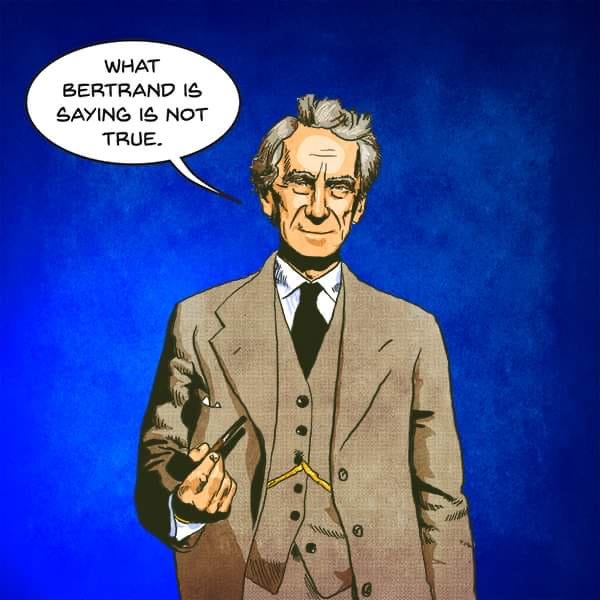
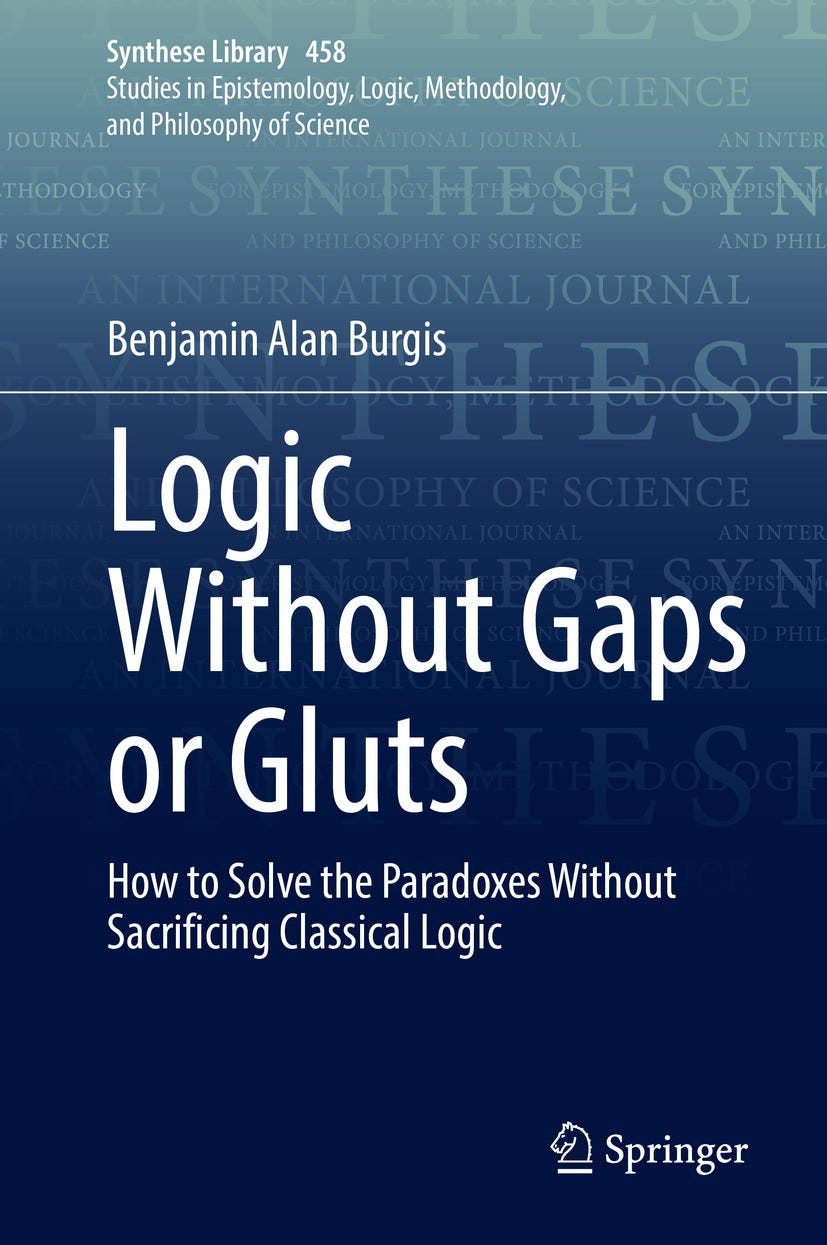


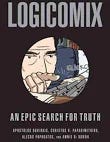

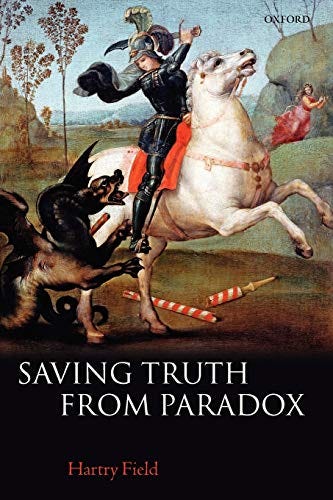
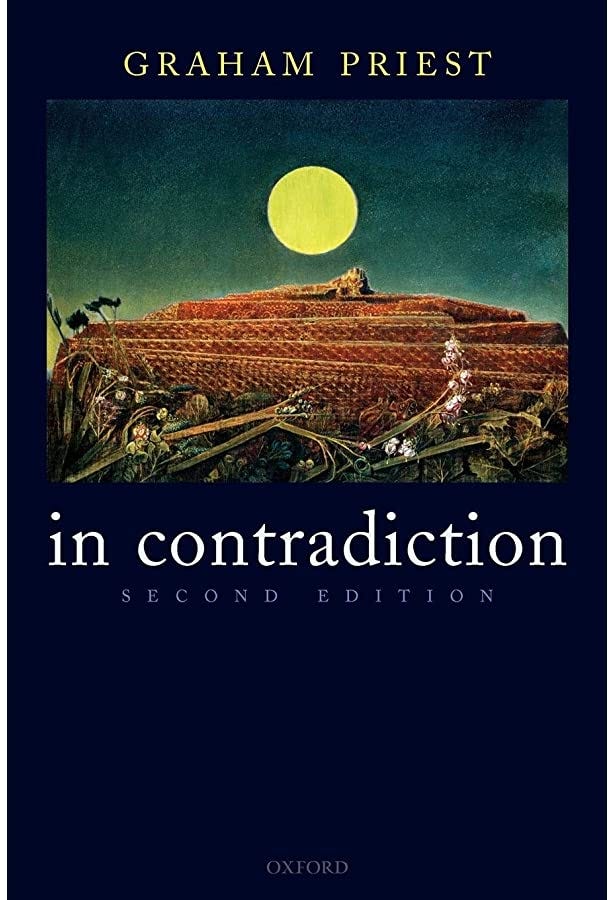

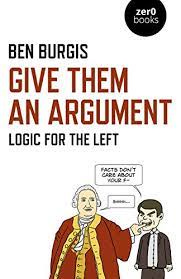
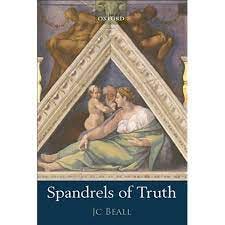
What interests me about semantic paradoxes and vague predicates is that they are examples of how ordinary language is not and cannot be like a formal language. It is produced by people interacting with each other and with nature, and does not obey these formal laws. You can try to make these logical laws work but only at the price of stipulating meanings that don’t get at everything humans using these words in the wild actually communicate. And we also have to start banning certain sentences that make perfect sense in ordinary discourse. In other words, you can only make ordinary language formal by creating a sub-language in which the participants agree that they are talking in special ways - although they inevitably borrow from ordinary language implicitly, generating new formal problems.
I notice your argument for doing that is ultimately a pragmatic one: if we are more precise in our use of concepts, we will come to understand the domain better. The “dialectical” response is “Sure that could work for some purposes, but the price of that system is going to be some implicit presupposition you can’t even formulate within the system”. The big leaps are when that suppressed implicit presupposition become a barrier to solving the pragmatic problems the formalized system of concepts is designed to address, are then brought to awareness and new, more general, implicit presuppositions are substituted.
At that point you have to stop *applying* your rules for discourse and have to reform them. That involves making the presupposition explicit. It also need not point to a single determinate answer, as your discussion of various ways of resolving the Liar’s Paradoxes shows.
While Marx himself never had much to say about these issues, I think if you see ordinary language as a social force of production - and more specialized formal languages as also forces of production- it leads to some insight. Both the ordinary language and specialized formal languages have to be reproduced and are constrained by the metabolism between humans and nature, the pragmatic tasks both are expected to solve are shapes by the class structure and so on. A democratic observation is that ordinary language is already produced socialistically without state or market (although shaped somewhat by both) and specialized, formal ways of talking depend on ordinary language.
IT IS NOT A Bivalence but a TRINITY; TRUTH FALSE and forgotten by us today but most important FAITH. trinities are everywhere; mind, body, soul. Father Son You. God Jesus Believers. Left Right Center. You Me US ❤️❤️❤️